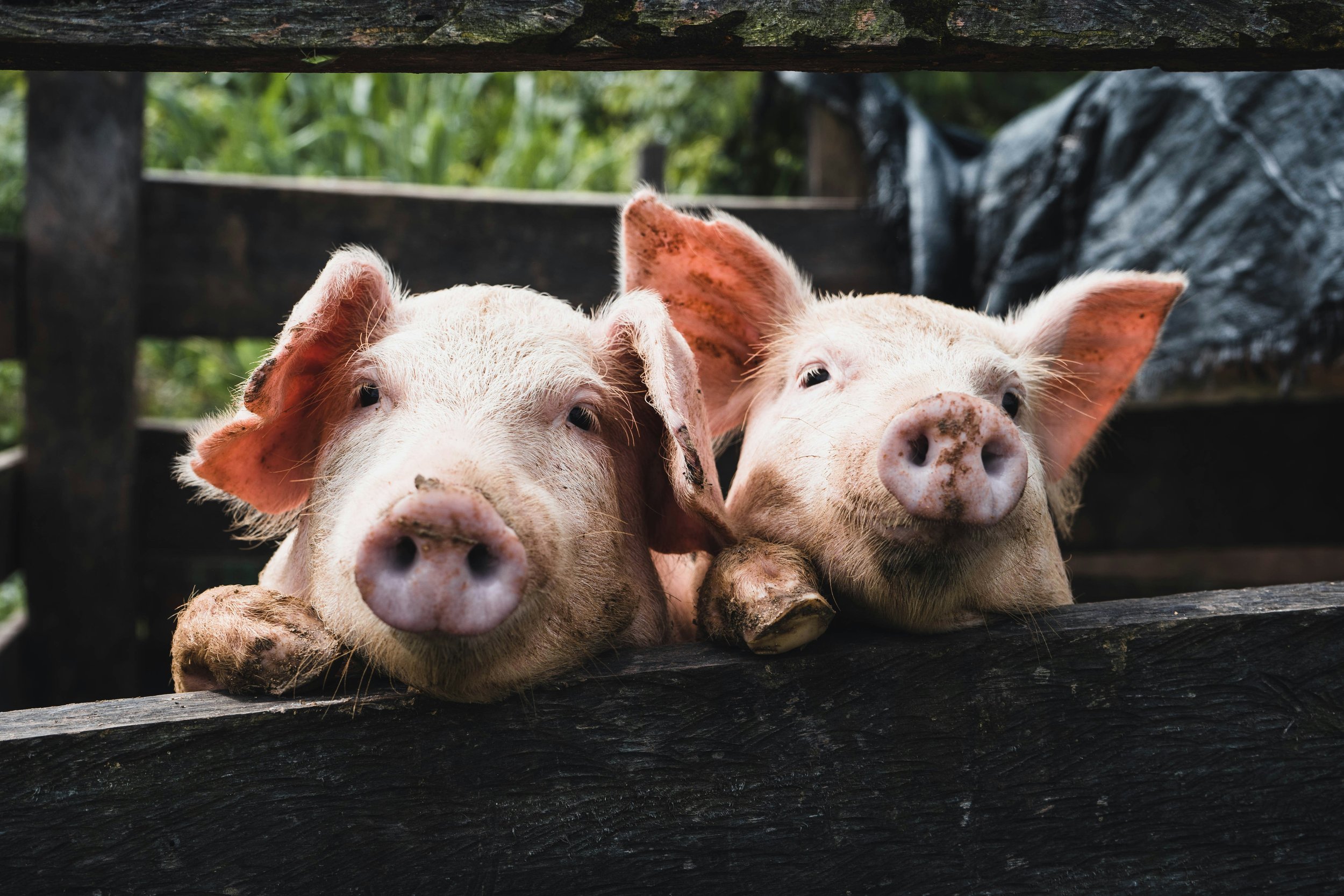Denmark to launch world’s first carbon tax on agriculture
Under the plans, which were announced earlier this year but confirmed this week, livestock farms will be charged per tonne of methane emitted.
Denmark has finalized its plans to launch the world’s first carbon tax on animal agriculture.
The historic move will introduce a tax of 300 kroner ($43) per tonne of methane on emissions from livestock.
The climate tax would therefore have the most impact on factory farms which house thousands of animals and typically emit tonnes of environmentally-destructive emissions per farm. Environmental groups say that large factories including those that confine up to 100,000 pigs are “not uncommon” now in Denmark.
The tax, which will be introduced in 2030, is part of the country’s efforts to achieve its legally required target of reducing greenhouse gas emissions by 70 percent from levels recorded in 1990.
“We will be the first country in the world to introduce a real CO2 tax on agriculture,” said Taxation Minister Jeppe Bruus in a statement earlier this year when the plans were being discussed. “Other countries will be inspired by this.”
Finalizing the exact policies has taken months of collaborative discussion between agriculture organizations, environmental groups, and Denmark’s political parties.
Known as the Green Tripartite agreement, the final plans now aim to reduce the country’s nitrogen emissions by 13,780 tonnes every year from 2027 onwards.
In addition to the agricultural tax on emissions, the agreement will also protect and restore a huge amount of land across the country. This includes the planting of over 600,000 acres of new forest, as well as the restoration of over 300,000 acres of wetlands, which are able to store carbon.
"Danish nature will change in a way we have not seen since the wetlands were drained in 1864," Mr Bruus said of the plans.
Boost plant-based initiatives
While Denmark is currently a major exporter of pork and dairy, the government is implementing new ways to help increase the popularity of plant-based foods, which emit half as much greenhouse gases as animal-based foods.
As a result, as part of the historic Green Tripartite agreement the government is complimenting the tax on livestock with a boost to plant-based food production.
In a press conference on November 18 to launch the agreement, Denmark’s Coalition Government confirmed that the parties agree that “a shift to more plant production is a central element in the green transition.”
Several plant-based elements are now part of the agreement, including the announcement of an additional €55 million ($57 million) for the Plant Based Food Grant over the next five years.
Denmark’s commitment to boosting plant-based food comes as no surprise, as just last year the country’s government became the first in the world to develop a plant-based action plan that aims to increase the uptake and production of alternative proteins.
The “milestone” Action Plan for Plant-Based Foods aims to help tackle the climate crisis and create a healthier nation by encouraging the consumption of more plant-based foods.
Food policy groups have welcomed Denmark’s bold action to promote plant-based food and tackle the climate crisis.
“This is the future of agricultural policy if we seriously want to mitigate the devastating effects of climate change,” said Jasmijn de Boo, CEO of policy group ProVeg. “Animal agriculture is responsible for up to a fifth of global greenhouse gas emissions, a fact that has been ignored or sidelined for too long. Further delay in action to reduce emissions from this sector will only worsen the situation for farmers as the climate crisis intensifies.”
We Have A Favor To Ask…
Species Unite amplifies well-researched solutions to some of the most abusive animal industries operating today.
At this crucial moment, with worldwide momentum for change building, it’s vital we share these animal-free solutions with the world - and we need your help.
We’re a nonprofit, and so to keep sharing these solutions, we’re relying on you - with your support, we can continue our essential work in growing a powerful community of animal advocates this year.






